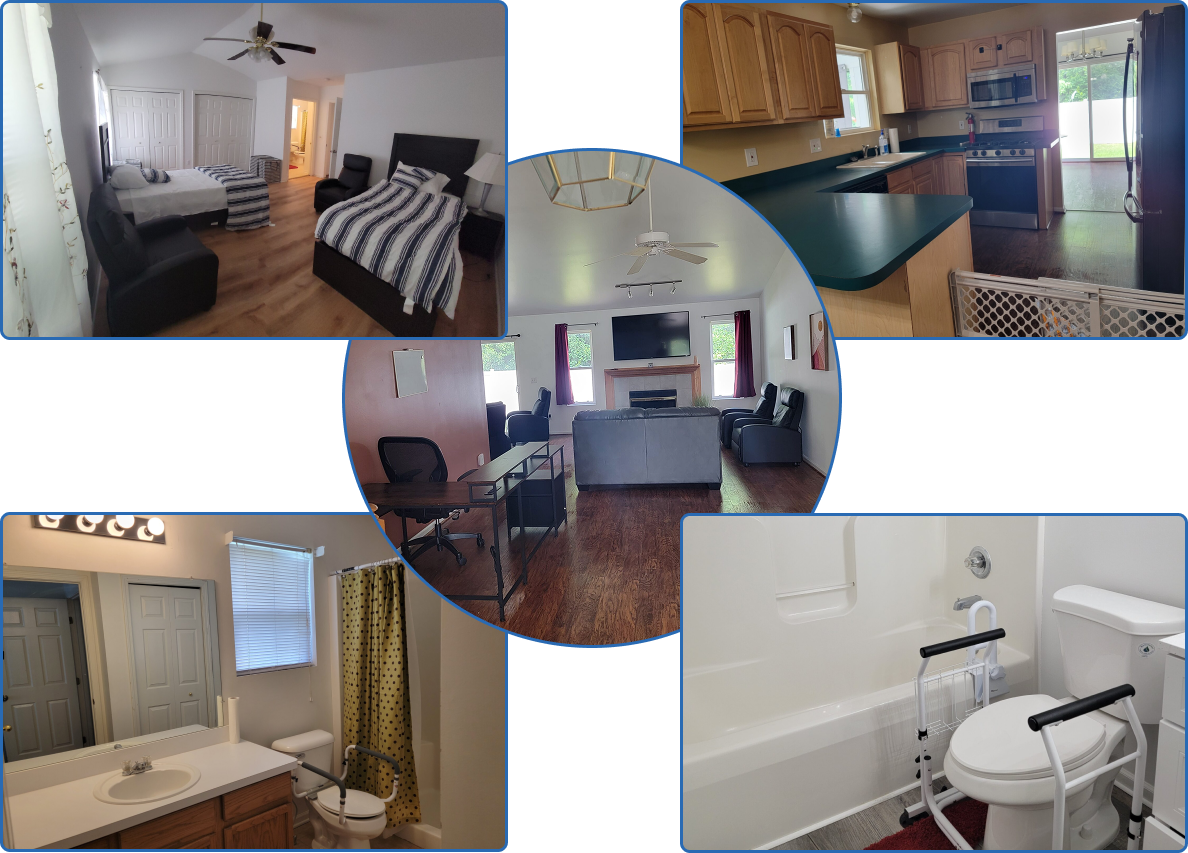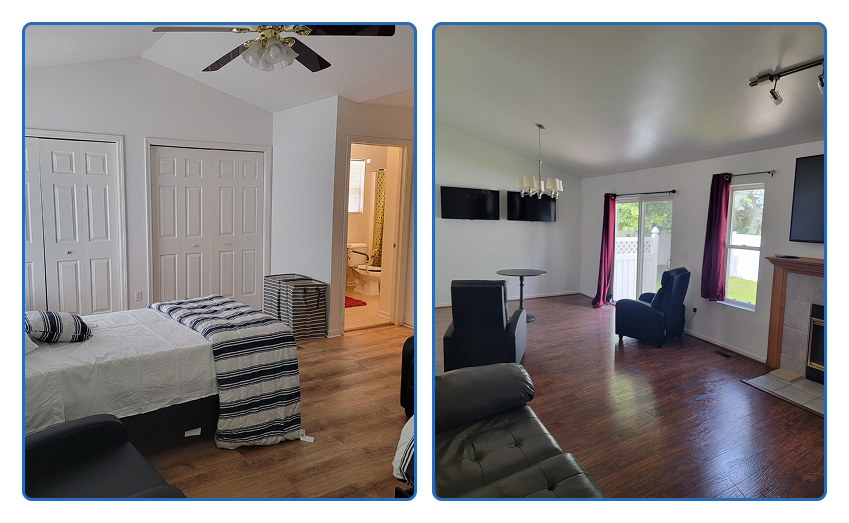Belleville Quality Living in Belleville, Michigan
We offer an ideal adult foster care environment precisely because the scale, our leadership, and philosophy foster a low-stress, dignity-preserving setting. As a licensed small-group home (with a capacity of 5 residents), it naturally avoids the busy corridors, competing priorities, and impersonal routines common in larger institutional settings. This “non-overwhelming” atmosphere means each resident can live with more predictability, consistency, and personalized attention—associating care with comfort, not chaos.
Under nurse leadership, Belleville Quality Living can maintain strong clinical oversight without sacrificing warmth. Care plans, medication management, and health monitoring are guided by professional nursing judgment, giving families confidence in medical safety while keeping daily life gentle, accessible, and human. The presence of nurses also helps reduce emergencies, ensures smoother transitions when needs shift, and fosters better coordination with outside providers (doctors, therapists, pharmacies).


Affordability is another essential strength. Small adult foster care homes often have lower overhead costs (smaller staff rosters, less infrastructure) which can translate to more reasonable pricing than in full-scale assisted living or nursing facilities. This makes high-quality, safe care more accessible to families who might otherwise face financial strain.
Importantly, Belleville Quality Living’s management team commits to community partnerships. By working with local healthcare providers, social services, volunteer groups, and advocacy networks, they can amplify support, bring additional resources in (visiting specialists, community events, educational programs), and prevent care isolation. Residents benefit from connectivity to the broader community, not confinement to walls.
When comparing small-scale assisted living or adult foster care to larger institutional models, several advantages stand out:
Greater preservation of resident dignity and autonomy. In a small home, staff can adjust pacing, habits, and routines around individuals rather than forcing individuals to adapt to large institutional schedules. Residents can have more say in meals, activities, personal space, and daily rhythm.
Stronger relationships and continuity. Staff and caregivers are more likely to know residents well—personality, preferences, history—and thus can respond more sensitively and proactively.

Risk Management Professionals seek to identify, analyze and document the risks associated with a company’s business operations, as well as monitor the effectiveness of risk management processes and implement needed changes.
Nursing encompasses autonomous and collaborative care of individuals of all ages, families, groups and communities, sick or well and in all settings. Nursing includes the promotion of health, prevention of illness, and the care of ill, disabled and dying people.
A physician is a medical doctor who usually focuses on the non-surgical treatment of patients’ conditions. That is not to say that being a physician is not practical; most specialisms have a unique range of procedures that relate to their specialty.

Less sensory overload and more calm. Fewer hallways, less ambient noise, fewer residents moving about—this matters especially for individuals with cognitive challenges (e.g. Alzheimer’s, dementia).
Quicker responsiveness. With a smaller staff-to-resident ratio, subtle signs of decline, discomfort, or need changes can be noticed and addressed earlier.
Flexibility and personalization. The home can adapt to individual preferences (décor, meal choices, schedules) without the rigidity of larger systems.
Together, these attributes mean Belleville Quality Living offers a compassionate, clinically sound, and community-integrated care setting where dignity, individuality, and everyday comfort are prioritized over scale and standardization.

